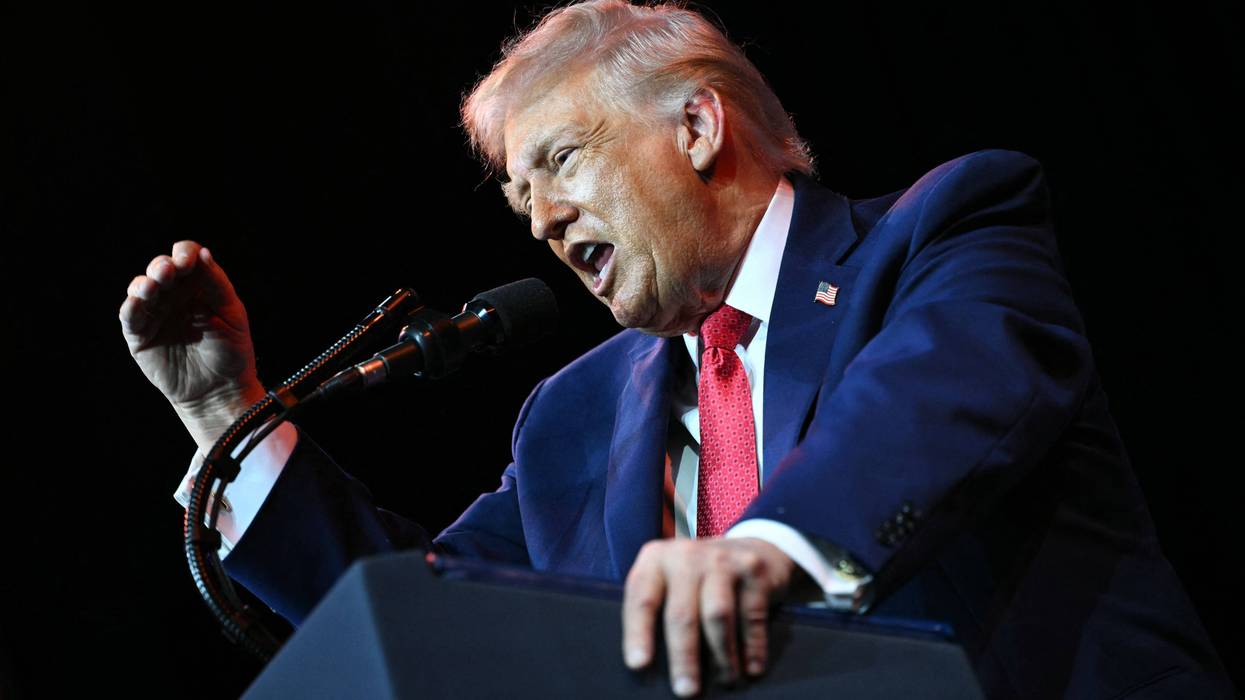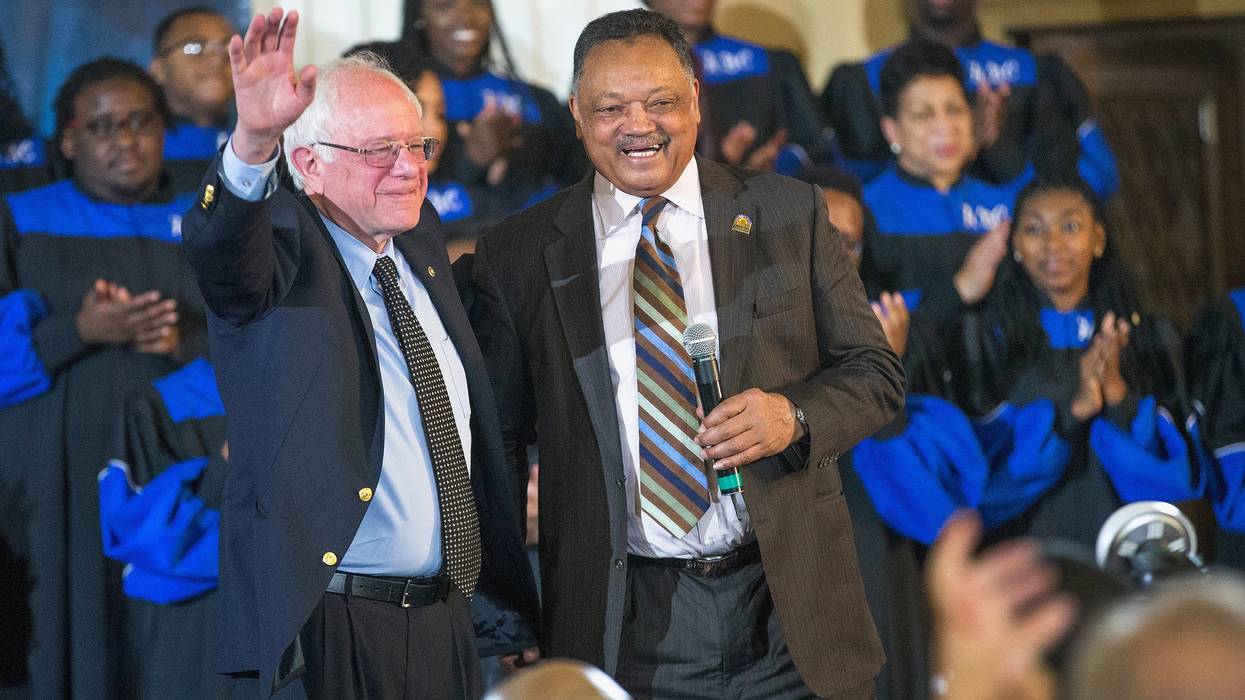From Minneapolis to Somalia: Here’s Everything Trump Gets Wrong About Somalis
Somalis are not the first to be victims of Trump’s racism, xenophobia, and Islamophobia, nor will they be the last. We must stand with the Somali community against Trump’s bigotry and prejudice.
Over the past several months, President Donald Trump has launched a tirade of racist, xenophobic, and Islamophobic attacks demonizing Somalis and Somalia. If Trump weren’t the president, his ignorant and incoherent ramblings would not be worth addressing; unfortunately, he is. So, let’s go over everything Trump gets wrong about Somalis.
Somalis, Minneapolis, and Trump’s Domestic Fearmongering
In December 2025, Trump told reporters that Somalis have “destroyed Minnesota.” He contends that Minnesota is “a hellhole right now. The Somalians should be out of here. They’ve destroyed our country. And all they do is complain, complain, complain.” According to Trump, the roughly 80,000 people of Somali descent living in Minnesota have somehow destroyed a state with over 5.7 million people—a state that ranked fourth in the 2025 Best States ranking from US News & World Report.
In January 2026, Trump deployed 3,000 federal agents to Minneapolis as part of an immigration enforcement effort primarily targeting Somalis. However, 58% of Somalis in Minnesota were born in the US. Of foreign-born Somalis, 87% are naturalized US citizens. There are roughly 5,000 people of Somali descent in the state who are noncitizens, but this includes people who are on visas, green card holders, permanent residents, those on Temporary Protected Status (TPS), asylum-seekers as well as undocumented immigrants. Jaylani Hussein, the executive director of the Council of American-Islamic Relations’ Minnesota Chapter (CAIR-MN), estimates that the number of undocumented Somali immigrants in the state is “less than a thousand for sure.”
Trump claims, “Somali gangs are terrorizing the people of that great State.” Yet, while the Somali population in Minnesota has grown in recent decades, the state’s violent crime rate is 28.5% lower than the US average. The rate of property crime is 8.7% lower. Compared to native-born Americans, Somali immigrants aged 18-54 have a lower incarceration rate. By contrast, Immigration and Customs Enforcement and Border Patrol are kidnapping, assaulting, maiming, and killing citizens and noncitizens alike. Trump’s gangs are actively terrorizing the people of Minnesota.
Trump complains that Omar is “always talking about the Constitution.” He forgets that the Constitution should always be first and foremost on the mind of an elected official.
Trump alleges that “much of the Minnesota Fraud, up to 90%, is caused by people that came into our Country, illegally, from Somalia.” Yet, Attorney General Pamela Bondi reports that the Department of Justice has been investigating fraud in Minnesota for months and thus far has only “charged 98 individuals—85 of Somali descent—and more than 60 have been found guilty in court.” While the government should investigate these crimes and hold the responsible parties accountable, the Trump administration has offered no evidence that Somalis en masse are guilty of rampant and widespread fraud.
Rep. Ilhan Omar (D-Minn.) is a frequent victim of Trump’s anti-Somali rhetoric. Trump has referred to her as a “fake congresswoman,” “garbage,” “disgusting,” and a “disgraceful person, a loser.” Even when responding to the murder of Alex Pretti by Border Patrol, Trump randomly and nonsensically attacks Omar: “Why does Ilhan Omar have $34 Million Dollars in her account?” On January 26, Trump announced that the Department of Justice is investigating why Omar’s net worth has grown since taking office. Yet, the reason for this is well-documented: As her 2025 Financial Disclosure Report makes clear, the change is due to her spouse’s business holdings. By contrast, Trump is illegally exploiting his political office to enrich himself and his family.
Trump complains that Omar is “always talking about the Constitution.” He forgets that the Constitution should always be first and foremost on the mind of an elected official. In fact, Trump could learn a lot from her!
Somalia, Imperialism, and US Military Violence
At the 2026 Annual Meeting of the World Economic Forum, Trump ranted: “The situation in Minnesota reminds us that the West cannot mass import foreign cultures, which have failed to ever build a successful society of their own. I mean, we’re taking people from Somalia, and Somalia is a failed—it’s not a nation.” Yet, Somali immigrants were not ‘imported,’ they were displaced. The political situation in Somalia is the byproduct of many factors including imperialism and US military interventions.
Starting in the late 1960s, Somalia implemented a number of progressive policies, including widening access to primary education, mass literacy campaigns, and public health initiatives. These policies were fueling social and economic development, especially in rural areas. However, Somalia’s growing ties with the Soviet Union and its embrace of Soviet-style policies worried the US.
Since the 1960s, Somalia and Ethiopia became increasingly entangled in Cold War politics that fueled political instability in the region for decades. As sociocultural anthropologist Ahmed Ibrahim writes: “Cold War geopolitical machinations partly created the contextual background to the 1977-78 Somalia-Ethiopia war. Somalia’s defeat in this war set the stage for the disintegration of the state in 1991.” Notably, 1991 marked the start of the Somali Civil War as well as the collapse of the Soviet Union—this was no coincidence.
Trump claims that in Somalia people “just run around killing each other. There’s no structure.” His vitriol overlooks the role of US military violence—and his presidency in particular—in fomenting that social and political instability.
While the Soviet Union had initially supported both Somalia and Ethiopia, after their war, it shifted its attention entirely to the latter. At that point, the US began providing a weakened Somalia its aid in the hopes of using them to combat Soviet influence in the region. In the early 1990s, with Moscow now politically and economically weakened, the US no longer saw any value in maintaining that dependency relationship. Instead, they began condemning the human rights abuses taking place in Somalia—abuses the US had known about but chosen to ignore until then.
In 1993, the US, with support from the United Nations, launched a military mission to disarm and arrest Somali militia members. Many civilians were caught in the crosshairs. In particular, US airstrikes killed a group of political leaders, religious leaders, intellectuals, and businesspeople meeting to discuss a UN peace proposal. Those strikes sparked massive outcry and triggered a wave of retaliatory attacks against US and UN troops. The growing violence fueled mass displacement and migration out of Somalia. The mid and late-1990s saw the largest influx of Somali immigrants arriving in the US, predominantly Minnesota.
Importantly, US military presence in Somalia continues in the name of counterterrorism and "supporting" the central government in Mogadishu. However, as is often the case, the US has contributed to the very political instability and violence it purports to be solving. The Trump administration has been particularly devastating. His administration carried out 219 military strikes in Somalia during his first term. So far, in his second, the US has conducted 162. By comparison, under President George W. Bush, President Barack Obama, and President Joe Biden, the US launched 110 strikes in total.
According to the nonprofit watchdog Airwars, since 2007, US airstrikes have killed an estimated 93 to 170 civilians, including 25 to 28 children. In September 2025, a US drone strike killed Omar Abdullahi, a prominent political leader who played a key role in local governance, including rallying support against insurgents and gathering supplies to support government operations.
Trump claims that in Somalia people “just run around killing each other. There’s no structure.” His vitriol overlooks the role of US military violence—and his presidency in particular—in fomenting that social and political instability.
Somalis as Scapegoats
Ultimately, none of these facts matter to Trump. Even if you could educate him about the history and political situation in Somalia; or the many cultural and economic contributions people of Somali descent have made to Minnesota or the US more broadly, he would almost certainly continue to villainize them—why? Because as a small population of predominantly Muslim people of color living in a state Trump lost three times in a row, Somalis are an easy and useful scapegoat.
The “Somali fraud network” narrative becomes the pretext that allows the Trump administration to invade Minnesota, terrorize its civilians, and then send its governor a “ransom note” with a list of demands including access to the state’s voter rolls. Trump, a fraudster himself, can exploit this fraud narrative to make himself appear tough on crime and immigration enforcement; while, at the same time, pardoning people like David Gentile who defrauded thousands of investors as part of a $1.6 billion Ponzi scheme.
Somalis are not the first to be victims of Trump’s racism, xenophobia, and Islamophobia, nor will they be the last. We must stand with the Somali community against Trump’s bigotry and prejudice. We must correct the misperception that Trump’s vile rhetoric is trying desperately to normalize. We cannot allow his hatred to win.
![People gathered for a traditional Somali wedding in the banquet room at the Safari Restaurant and Banquet Center at 4th Ave. and Lake Street, Minneapolis, Friday afternoon, July 29th, 2011.] Bruce Bisping/Star Tribune.](https://www.commondreams.org/media-library/people-gathered-for-a-traditional-somali-wedding-in-the-banquet-room-at-the-safari-restaurant-and-banquet-center-at-4th-ave-and.jpg?id=62230790&width=1245&height=700&quality=70&coordinates=0%2C175%2C0%2C176)

